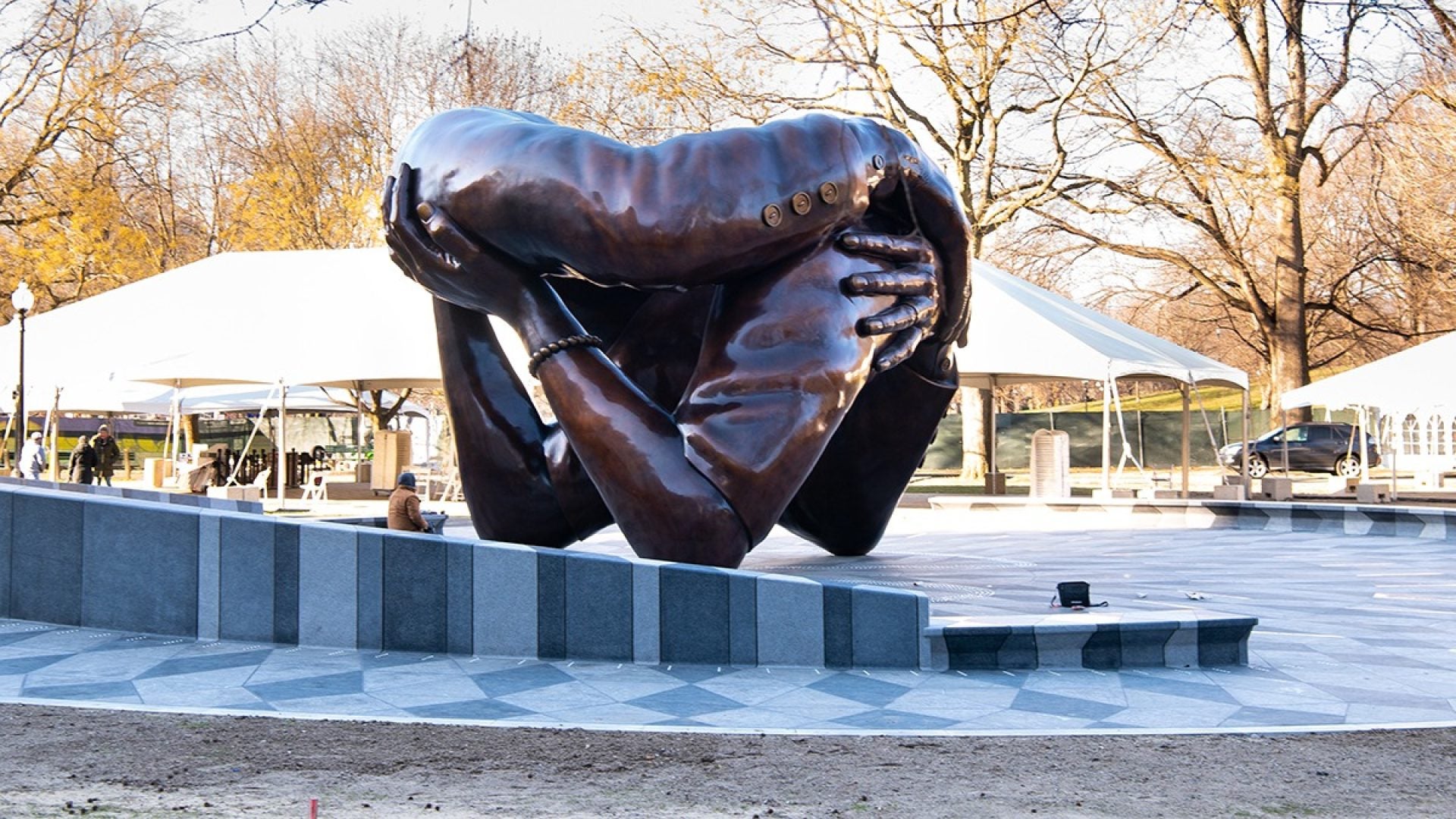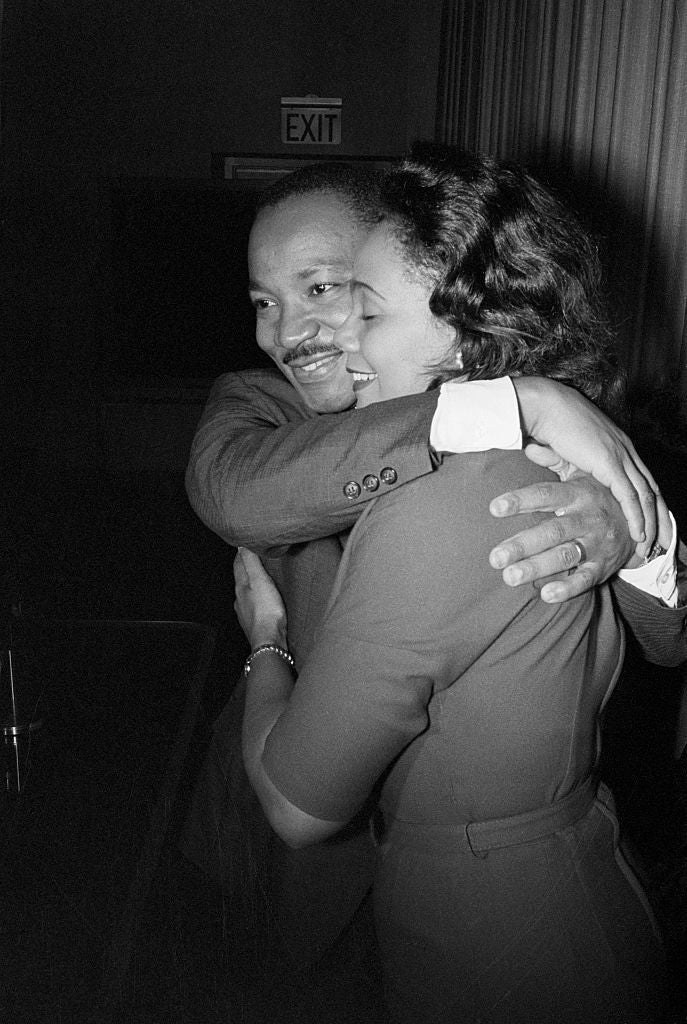
One of the largest memorials dedicated to racial equality gets unveiled on Friday afternoon at Boston Common, America’s oldest public park.
The 20-foot tall bronze sculpture of four interlocking arms called “The Embrace” honors the legacy of Dr. Martin Luther King Jr. and Coretta Scott King.
The inspiration for the design of the Embrace comes from a photo of the hug King Jr. shared with his wife after he won the Nobel Peace Prize in 1964, CBS News reports. It also celebrates their time in the city of Boston.

The couple met while Dr. King was studying for his doctorate at Boston University and Mrs. King was studying at the New England Conservatory. One of the Kings’ first dates was on the Common, and the Parkman Bandstand was the final location of the 1965 Freedom Rally, making it quite a fitting location for the sculpture.
Of the 126 proposals submitted for a sculpture, The Embrace was the only one that included Mrs. King and recognized her ongoing commitment to racial equity long after her husband’s death.
“There was an intimacy that I saw that wasn’t really highlighted often,” said Hank Willis Thomas, the artist who conceptualized the sculpture, told CBS News.
“I just love that image, him hugging her with such glee and such joy and such pride, and I saw the pride on her face. And I recognized that this was teamwork. And all of his weight in that picture is, like, on her,” Thomas told the news outlet.
Rather than depicting entire figures, Thomas and MASS Design Group architects decided to depict that specific moment of intimacy with only their arms and hands.
Thomas also mentioned how important it was for him to portray both the husband and the wife. Coretta Scott King carried on Dr. King’s work after his assassination in 1968.
“I was not alive when he was alive,” he said. “She was the symbol. Her grace, her presence was palpable. And I thought that was a pretty powerful metaphor for their legacy, that she put his legacy on her shoulders and carried it for almost half a century.”
It’s something that Imari Paris Jeffries, who leads Embrace Boston, the equity-focused non-profit behind the sculpture, says is an important recognition, particularly for Black women.
“People underestimate the power of women and underestimate the power of Black women and their influence on society,” Jeffries said.
“We wanted to get away from this great person version of statues and we wanted people to imagine that those are their arms, those are the arms of someone who has embraced them, those are the arms of someone that they want to embrace, they have embraced,” Jeffries added. “It’s a memorial to honor the Kings and those other leaders, but it’s also a memorial for all of us.”
The monument also includes 65 names of other Boston leaders memorialized on the plaza. It will officially open to the public in February.